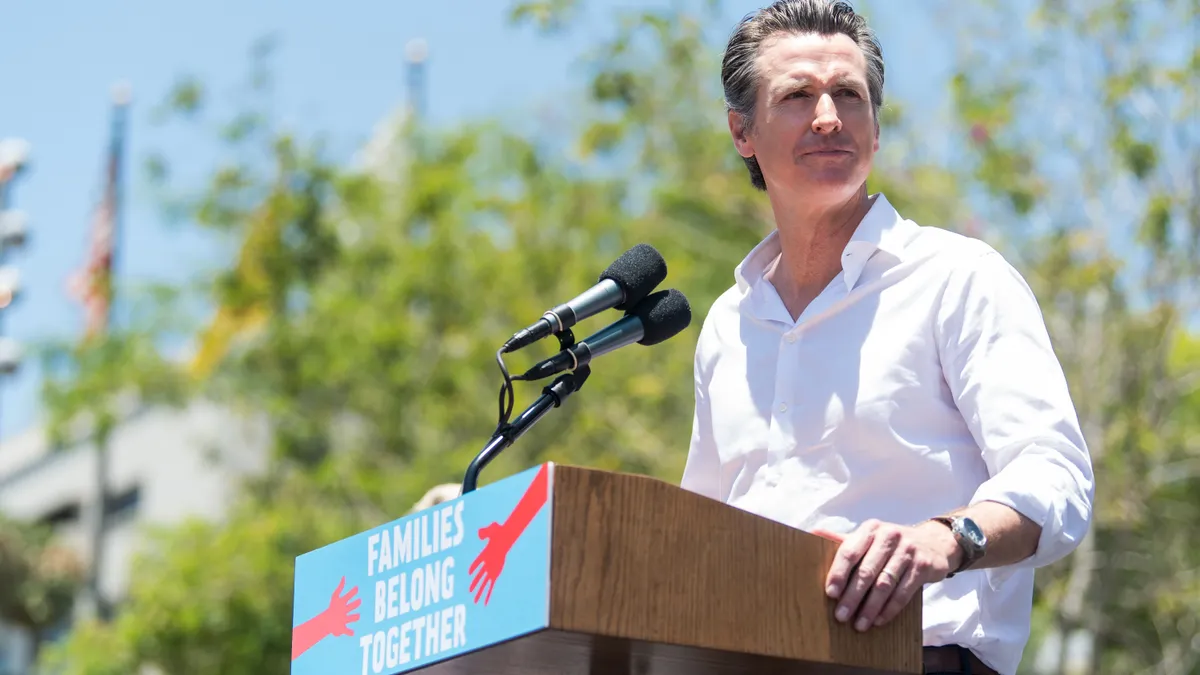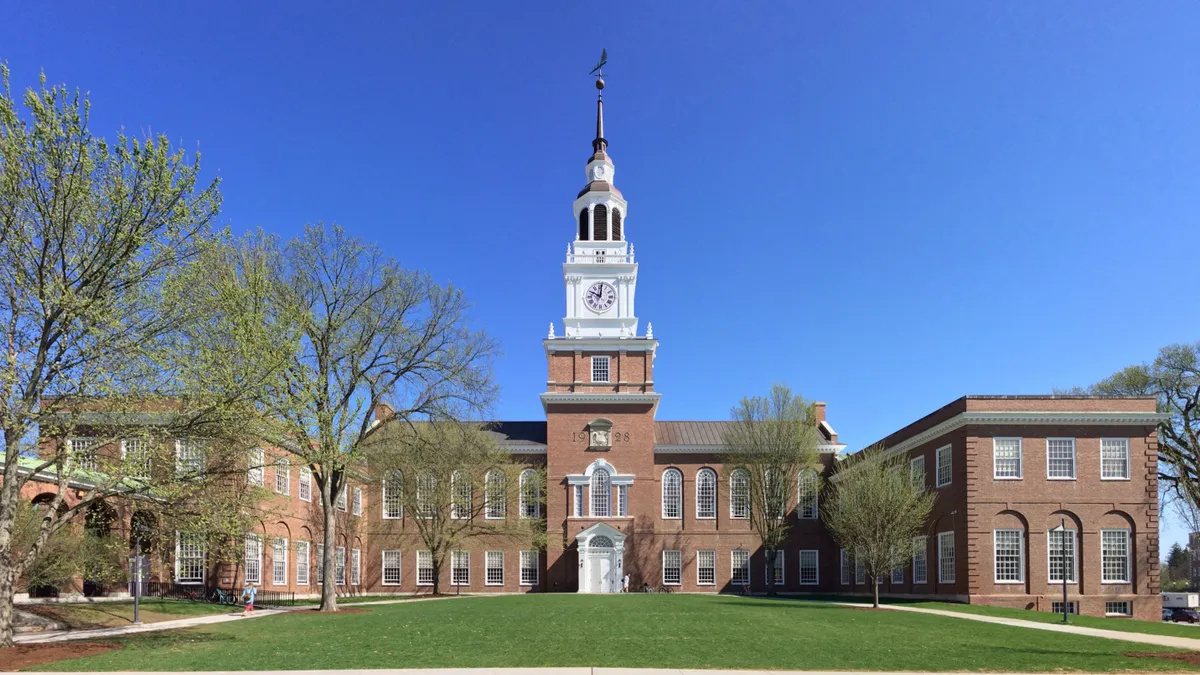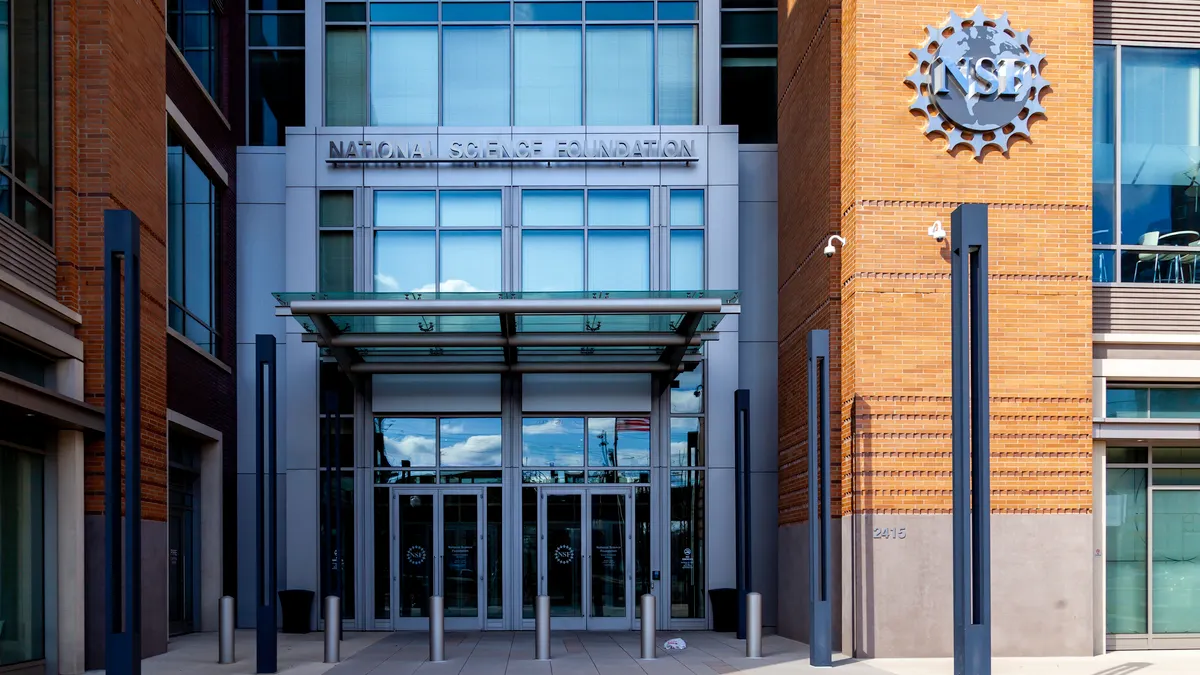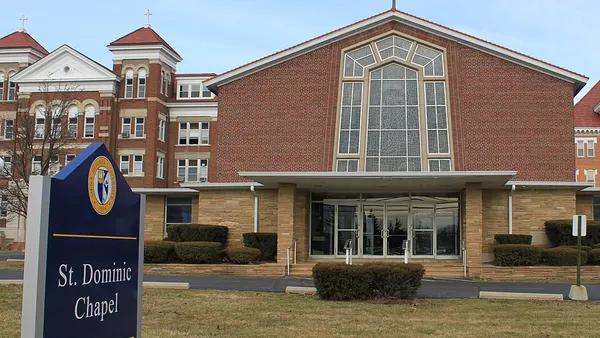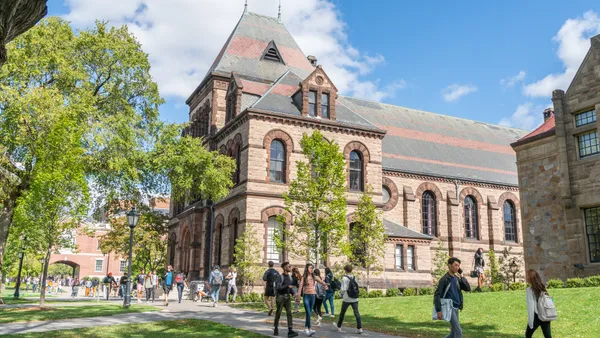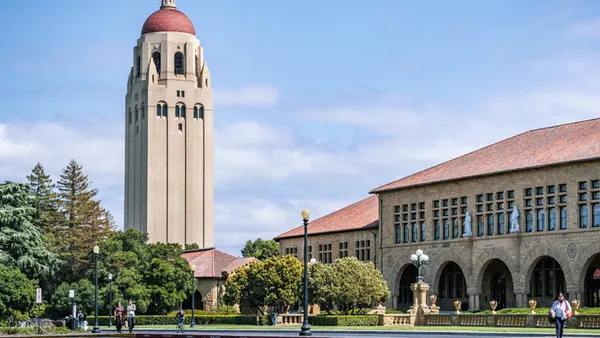Dive Brief:
- Overall funding for California public higher education would drop by 2% to about $40 billion under Gov. Gavin Newsom’s proposed 2023-24 budget released Tuesday.
- The Democratic governor fulfilled budgetary promises to the state’s four-year public systems, with 5% base funding increases adding $215.5 million and $227.3 million in ongoing funds for the University of California and California State University, respectively. California Community Colleges would also see some new money, like about $653 million in ongoing funding for a roughly 8% cost-of-living adjustment.
- But Newsom also proposed delaying some key capital projects, partially resulting in the topline funding drop. Those include pushing back $250 million to the 2024-25 fiscal year for construction and renovation of affordable student housing.
Dive Insight:
State higher education spending decisions are worth extra attention right now amid persistent inflation, economic uncertainty and federal aid approved during the pandemic that's moving farther into the rearview mirror. Many states are diving into budget planning as legislative sessions kick off, but California stands out as the country’s most populous state that historically has had strong higher ed investments.
UC and Cal State are also some of the highest enrolling public postsecondary systems in the nation.
Newsom’s draft budget, the final version of which is expected to pass in several months, reflects these priorities.
Despite a $22 billion funding shortfall in the state, the proposed budget still moves forward with 5% base funding boosts for UC and Cal State. The increases are part of a multiyear deal in which Newsom agreed to 5% annual increases so long as the two systems lift their graduation rates, increase the share of California residents enrolling and bring down the cost of college.
California’s 115 community colleges would receive funding boons in some areas under the governor's plan. However, the state projects that money associated with Proposition 98 — the formula calculating how much in public funds go toward the state’s K-12 schools and community colleges — would fall by $1.5 billion from what the legislature approved last year, to $108.8 billion.
This is the first such drop in a decade, EdSource reported.
Newsom’s budget also asks community colleges to strike dual-enrollment agreements with the K-12 districts in their respective areas. These are deals between K-12 schools and institutions, in which students can take college-level courses.
The governor earmarked $200 million in one-time Proposition 98 money to help community colleges correct flagging enrollment, which dropped 18% or so over the course of the coronavirus pandemic. That equates to about 300,000 fewer students at community colleges.
Because some state money is tied to enrollment, further declines could jeopardize community colleges’ funding, although they are shielded until 2025 by a "hold harmless" provision.
Total funding for two-year colleges in 2023-24 is forecasted to drop by 3%. Despite this, the interim chancellor of the community college system, Daisy Gonzales, praised the budget plan, saying it protects education during uncertain times.
“The proposal builds on California community colleges’ strengths with added resources for career training, building out partnerships that connect traditionally underrepresented high school students to college opportunities by concurrently attending community colleges and a continued commitment to help colleges attract and retain students,” Gonzales said in a statement.
The budget also seeks to delay some capital projects. It would postpone $200 million for construction of an Institute for Immunology and Immunotherapy at the University of California, Los Angeles, as well as $83 million for a clean energy initiative at UC Berkeley and $83 million to expand the UC Riverside and UC Merced campuses.



